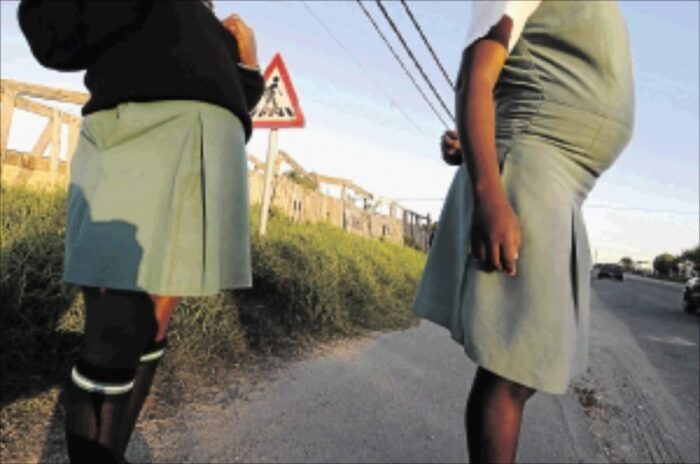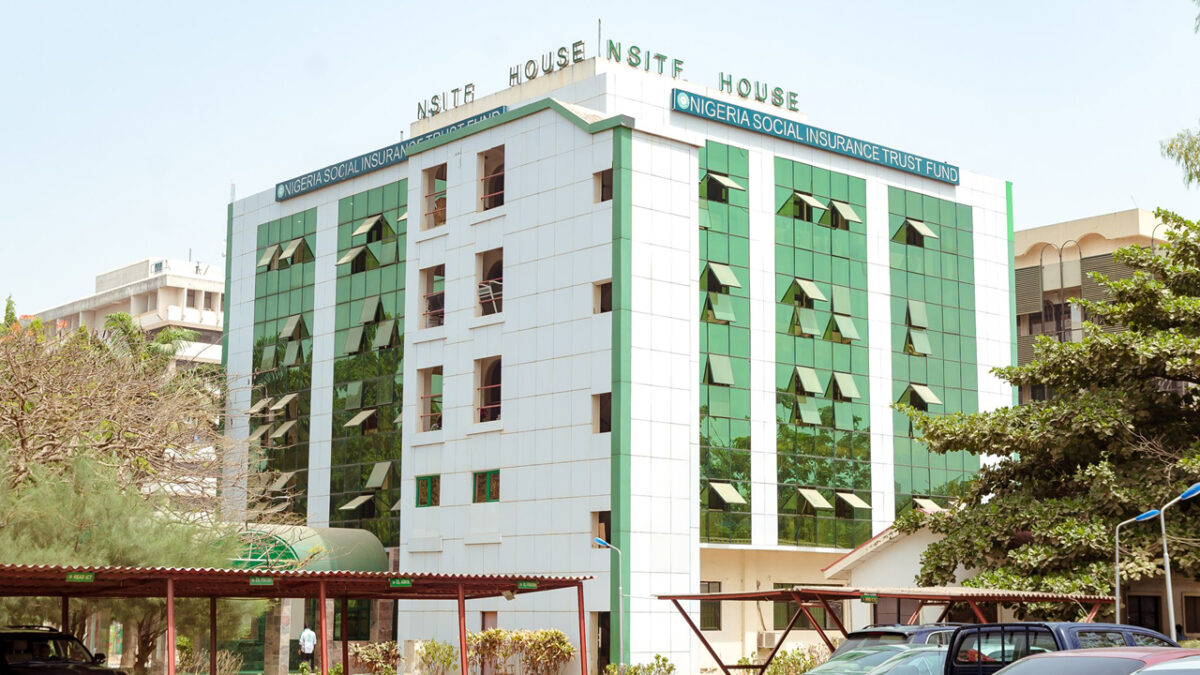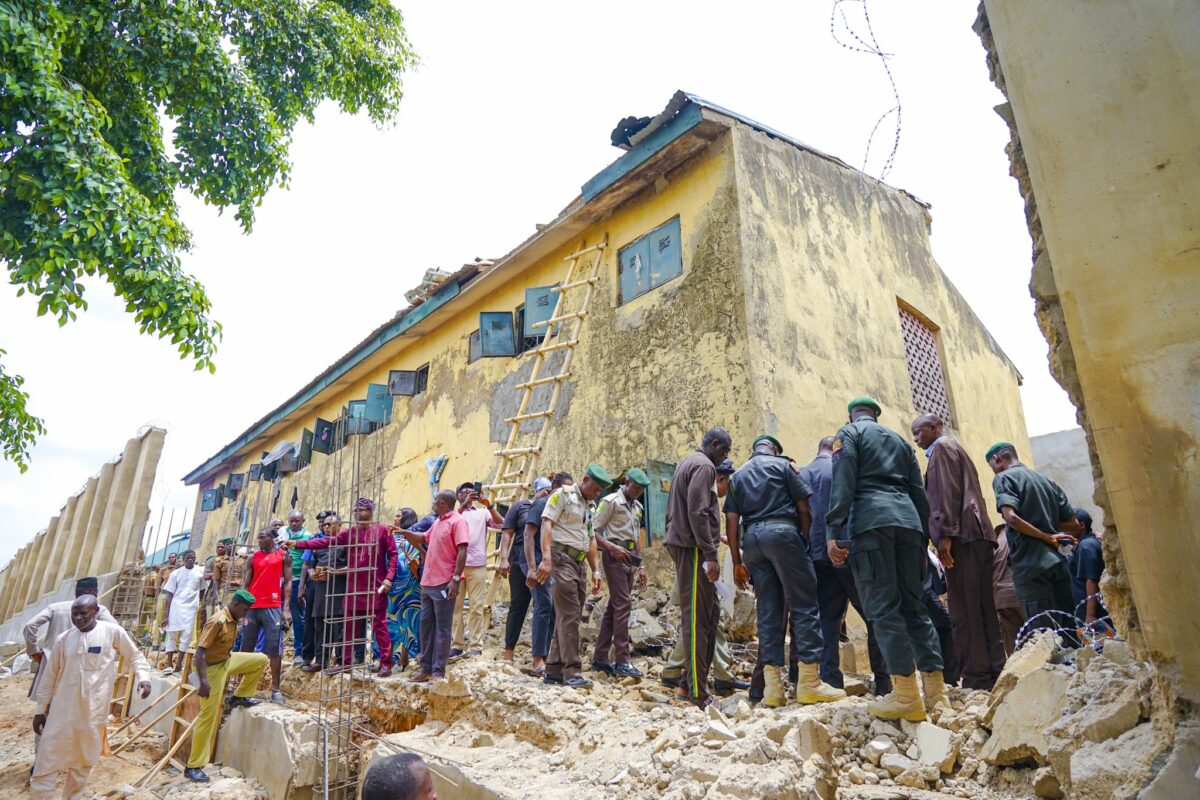When 15-year-old Essien (not real name) lost her mum in 2021, little did she know her life would take a different turn.
Being the 7th child of the family, Essien was just in JSS3 when the tragic death of her mom occurred. After the funeral, her father found it difficult to take care of them, both financially and otherwise.
She soon met a man who promised to take care of her and the relationship resulted in pregnancy.
Essien became pregnant at such a young age, leading to a halt in her education. Although the man did not deny the pregnancy, Essien told FIJ, he asked her to abort the baby. When she refused, he reluctantly agreed to shoulder the responsibilities. That was when she moved in with him.
“I met him when I was in JSS3. He is a fisherman who spends most of his time at the nearby riverine community where he works. He only comes home once in a while,” she said.
Now aged 17, Essien recounted her experience while pregnant, saying she felt pain all through and was always too tired to do anything.
Though living with her father when this reporter visited in October, Essien said she had been living with her baby’s daddy but occasionally moved in with her father and siblings whenever she could not cope in the man’s house alone with little or no financial assistance.
“He gives me between N4,000 and N5,000 once in a while and has only given me money three times this year. It is never enough to sustain us,” she said.
Essien said her worst regret was not being able to complete secondary education.
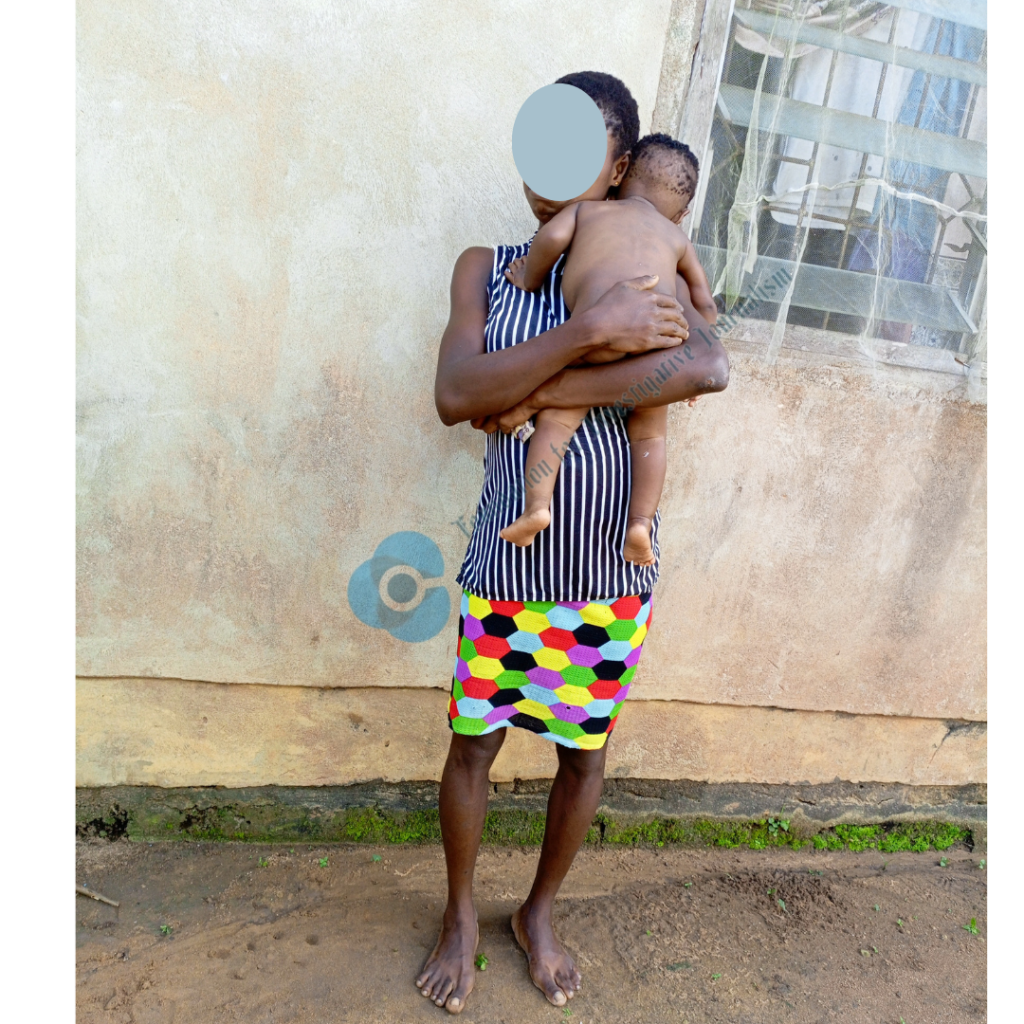
“I still want to go back to school, but I’ve been busy taking care of my child alone,” she added.
Essien’s classmates are already in their penultimate year and will soon be done with secondary school, but she finds herself occupied with taking care of her child with little or no help from the child’s father,whom she refers to as her husband even though they are not married.
“I really want to return to school, but I don’t even have the hope of doing that again. I’ve also not been working because of the pregnancy and my baby. I just recently started learning hairdressing to support myself and baby since he’ll turn one year this month,” Essien said almost in tears.
High prevalence of early pregnancy/marriage
Essien is just one of the 80 percent of young girls who gave up their education due to early pregnancy/child marriage, according to a UNICEF report. The report also revealed that 39 percent of girls married before their 15th birthday gave up their education.
Every year, an estimated 21 million girls aged 15 to 19 years, become pregnant in low-income regions, and approximately 12 million of them give birth.
Child marriage referring to the union of a young person less than 18 years is still widely practiced in many parts of the world and predominantly affects girls. It is a human rights violation that prevents girls from obtaining an education, enjoying optimal health, bonding with others their own age, maturing and ultimately choosing their own life partners.
Although child marriage is relatively higher in northern Nigeria with rates as high as 90 percent in states like Jigawa, the southern part of Nigeria is not without such cases. Akwa Ibom is among the four southern states with the highest prevalence of child marriage, with 22 percent recorded cases. Other states with similar percentages are Ogun, Oyo and Delta, with 29 percent, 23 percent and 23 percent respectively.
More girls are dropping out
Apart from the numerous health implications of early pregnancy such as Vesico-Vaginal Fistula (VVF), a medical condition that occurs when the girlchild’s body is too young and underdeveloped to give birth, early pregnancy/marriage deprives girls of their childhood, parental care and, most importantly, their education.
This prevalence of early pregnancy/child marriage has been found to translate to high rates of school dropouts among girls as revealed by a 2018 report by the Universal Basic Education Commission which ranked Akwa Ibom as the state with the highest number of out-of-school girls in the country with over 298,161 cases.
Adolescent pregnancy and childbearing can lead girls to drop out of school because of expulsion or personal circumstances, including having to take care of their children or being stigmatised by family, peers, and communities, a World Bank report states.
FIJ gathered that the tendency of a girl child to return to school after childbirth is very low as most of them either get busy with taking care of their kids or simply lose interest afterwards. Girls who move in with their partners go on to have more children and focus on raising a family while those who do not get married spend their remaining days working hard to earn a living with which to take care of themselves and the child.
“Married girls face many practical barriers to education, including household responsibilities, stigma, forced exclusion from school and gender norms that keep them at home,” says Girls Not Brides, a global network of organisations committed to ending child marriage.
“You rarely find any of them coming back to school after childbirth; they either end up in the man’s house and continue having babies or move on with their lives by learning skills,” the school matron at Community Secondary School, Adadia, told this reporter.
An obvious secret in Akwa Ibom State
With a mission to find the human faces behind the high rate of early pregnancy/marriage in Akwa Ibom State, this reporter took a trip to the State.
About two hours’ drive from Uyo, the State capital, is Adadia, a rural community in the Uruan Local Government Area.
The first stop was a secondary school in the community to ascertain the rate of dropout among female students because of early pregnancy/child marriage. One of the teachers in the school, Mrs Nsikan Umoren, revealed that the rate of early pregnancy in the community is very high.
“Some of the female students suddenly stop coming to school, and when you call their names, their mates keep saying ‘absent’. If you ask them about the student’s whereabouts, they’ll keep mute and some simply give a burst of mischievous laughter. No one will disclose the reason for the student’s absence,” Mrs Umoren told FIJ.
She added that sometimes when she enquires about a particular student for so long, one of her classmates may come privately to tell her that the said student is pregnant. “They hide it from the teachers, and it’s shrouded in secrecy,” she said.
FIJ asked at least 20 students across three schools in Adadia, Ewet, and Mbak-Etoi communities, all in Akwa Ibom State, and found that about 15 students knew at least one classmate who had stopped coming to school because of early pregnancy.
“I know some students who got pregnant while in school. Most of them stopped coming to school and left the village out of shame. It is very rampant here,” said Cynthia, a 16-year-old student in Adadia community.
Co-habitation, neglect and economic violence
One thing was common in all three communities FIJ visited: the majority of the students who got pregnant either remained indoors until childbirth or left the community to avoid the shame and stigma. Others were made to move in with their babies’ daddy, though with no formal marriage rite.
This was the situation Edidiong*, a 17-year-old teenage mother, found herself in last year when she got pregnant with her now four-month-old baby.
Edidiong, a resident of Mbak-Etoi, Uyo LGA of the State, was in JSS 3 at the time she got pregnant. She said her parents were disappointed in her so she went to live with the man who got her pregnant. Like Essien, Edidiong’s partner asked her to terminate the pregnancy, but she refused out of fear that she could die in the process.
For refusing to terminate her pregnancy, Edidiong’s partner allowed her to stay in his house but has been reluctant towards taking care of her and the baby.
“He only gives me money to cook for him, which I am grateful for because I get to eat from it as well. If my baby is sick and I ask him for money to buy medicine, he will refuse to give me money. We also don’t buy baby food; my baby has been surviving on breastmilk alone,” Edidiong told FIJ.
Filled with regrets, Edidiong said she would still be going to school had she not got pregnant, and that she didn’t continue because her classmates would have made a jest of her.
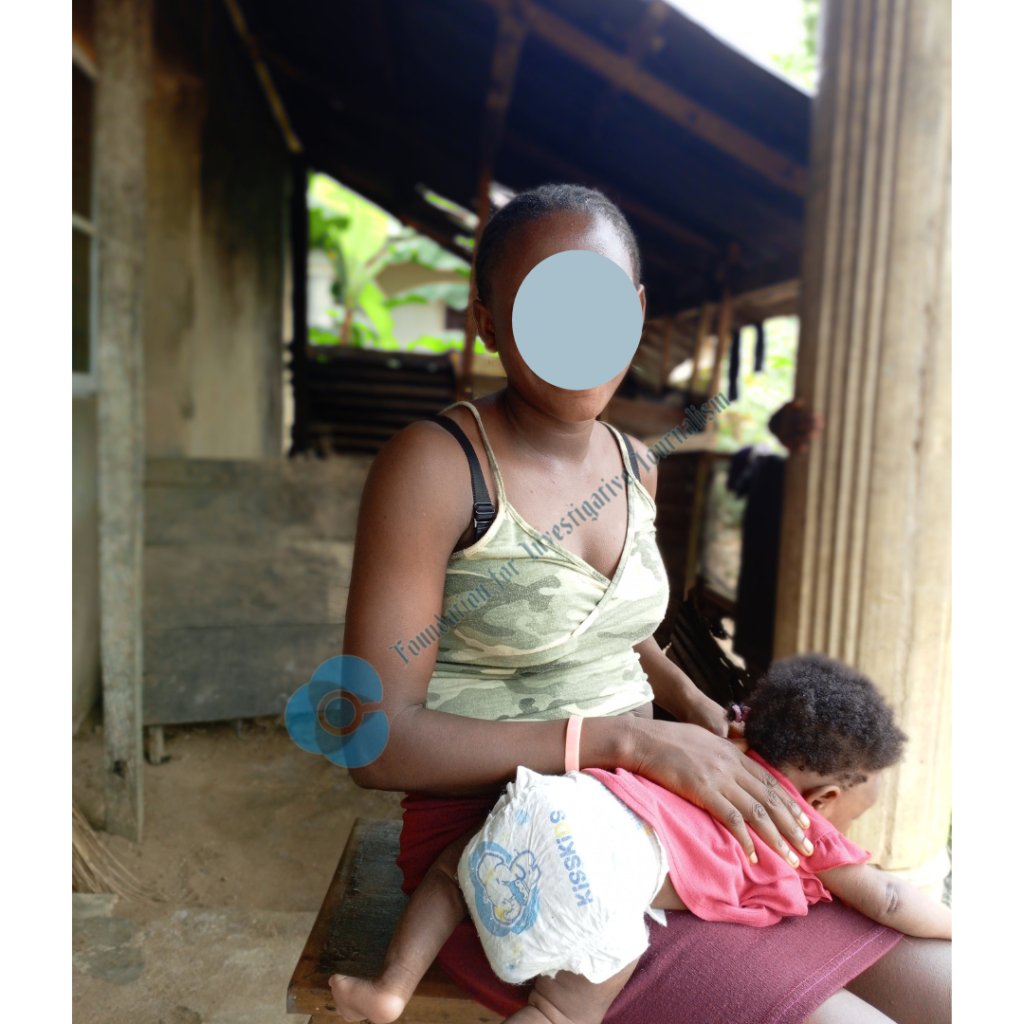
With no academic certificate to secure a paying job or skill to earn a living, and with a newborn to take care of, Edidiong is confined to the walls of the one-bedroom apartment where she lives with her baby’s daddy. She depends totally on the father of her child for her basic needs, which she says are just shelter and food. Every other need is left uncatered for and she just has to find a way to survive without them.
She recounted how she ran to her uncle for financial assistance the last time her baby fell sick and her partner neglected all pleas for money to get medicine.
“My life has changed drastically ever since. He was not like this before I got pregnant. He used to give me money before then. But he changed as soon as I got pregnant. I wanted to go and learn how to sew but he refused to give me money,” the distressed young mother told this reporter with her head slanted downward and eyes fixed on her baby who was breastfeeding at the time.
READ ALSO: Almost 10% of World’s Out-of-School Children Are in Nigeria, UNESCO Reveals
The United Nations Women classifies both Essien and Edidiong’s experiences as economic violence, a form of Gender-Based Violence (GBV) that involves making or attempting to make a person financially dependent by maintaining total control over financial resources, withholding access to money, and/or forbidding attendance at school or employment.
Aside from not being able to continue her education or learn a skill to earn a living, Edidiong still bears the scars of childbirth all over her body. She started experiencing rashes all over her body soon after she gave birth and still had them when this reporter visited.
“Nurses at the hospital said I did not have enough blood and asked me to bring money for treatment, but I didn’t have money, so I left,” Edidiong narrated, showing this reporter some of the reddish rashes on her right arm, which she kept scratching from time to time.
No end in sight?
From Essien to Edidiong and every other girl child who has fallen victim to early pregnancy/marriage, this provision of the law should have been the strong armour to shield them from ever being robbed of their childhood.
But the same laws meant to protect their interests have proven to be a two-edged sword which also attacks its owner at any given opportunity.
“There are divergent approaches to the issue of child marriage in the country. In the Northern region, the age of menstruation is deemed as maturity, but it is a known fact that this age varies from one girl to another. With the extant constitutional freedom of religion, and the continuous refusal of states to domesticate the Child Rights Act, we will, unfortunately, continue to have cases of child marriage, especially in specific regions in the country,” says Gladys Emmanuel, a human rights lawyer and gender equality advocate.
Barr. Emmanuel, the advocacy officer and in-house lawyer at Tabitha Empowerment Centre, told FIJ that factors such as poverty, peer pressure, social norms (preserving family honour, controlling female sexuality, securing economic stability), gender stereotypes, lack of harmonised laws to protect children and, above all, non-implementation of child protection laws form the root causes of early pregnancy/marriage in parts of the country.
According to her, the unending debate as to the minimum age of marriage and the tripartite nature of Nigeria’s legal system (civil, customary, and Islamic/shari’a law) still pose as roadblocks to the successful implementation of the Child Rights Act and serve as an escape route for offenders.
“While the 1999 Constitution of the Federal Republic of Nigeria (as amended) is silent on the minimum age of marriage, it recognises the age of adulthood as 18 years. The Matrimonial Causes Act places 21 as the age of maturity.
“Section 21 of the Child Rights Act 2003, which is derived from the United Nations Convention on the Rights of the Child 1989 sets the age of marriage as 18 years. It specifically outlaws child marriage by stating;
” No person under the age of 18 years is capable of contracting a valid marriage, and accordingly a marriage so contracted is null and void and of no effect”.
Barr Emmanuel said that section 23 of the Child Rights Act 2003 states: ‘Anyone who marries a child, or to whom a child is betrothed, or who promotes the marriage of a child, or who betroths ~ a child, commits an offence and is liable on conviction to a fine of N500,000; or imprisonment for a term of five years or to both such fine and imprisonment.
“However, the non-implementation of these laws, religious doctrines which support child marriage, poverty, illiteracy, traditional/societal norms, and lack of harmonised laws to tackle child marriage have made these laws dormant and ineffective; therefore, any effort to eradicate child marriage should begin with tackling these root causes,” Barr. Emmanuel told FIJ.
Subscribe
Be the first to receive special investigative reports and features in your inbox.


